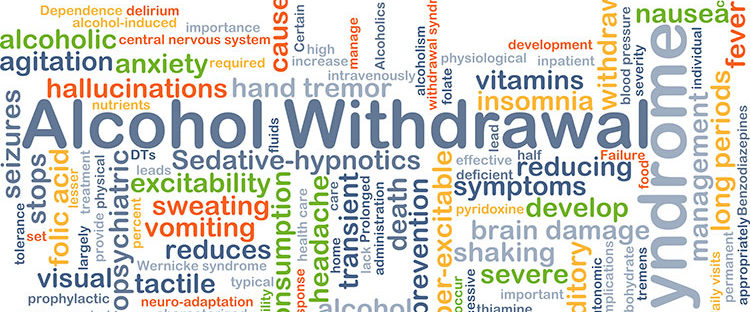Alcohol withdrawal is both uncomfortable and dangerous. For those witnessing someone in a state of withdrawal, it’s often easy to tell that something is very wrong. But it’s not uncommon for people who don’t know what’s going on in the person’s life, to miss the fact that these are signs or symptoms of alcohol withdrawal.
What are some symptoms of alcohol withdrawal?
Alcohol is a drug. While it does take significant alcohol abuse to develop a physical addiction to alcohol, alcohol addiction is very real, and medical treatment is often needed to avoid life threatening dangers that can result from withdrawal in a person who has alcohol dependence. Some common symptoms observed during an alcohol detox are irritability, anxiety, agitation, tremors, and of course DT’s and seizures.
Alcohol facts:
It’s important to identify several facts about alcohol. Excessive alcohol consumption on a regular basis can lead to alcohol dependence. Continued alcohol intoxication leads to alcohol tolerance, which often leads to greater consumption. Alcohol percentage in someone’s blood is identified as BAC, which is measured to determine the level of alcohol intoxication. As people build a tolerance, it’s possible that they will not feel the effects of the drug, yet their BAC level will still be elevated. This is a common contributor to drunk driving incidents. It’s also possible to suffer from an alcohol overdose, which can be fatal.
As a person engages in more consistent alcohol consumption, the risks for alcohol dependence increase. As the body and mind become addicted to the alcohol, the neurotransmitters are suppressed. During withdrawal, the neurotransmitters become hyperactive, which leads to the symptoms listed above. These symptoms are essentially the opposite of what alcohol does to someone when they use.
What are the solutions?
Alcohol awareness month is April. Each year, The National Council on Alcoholism and Drug Dependence (NCADD) takes measures to educate people on the dangers of alcohol. It’s important that family and friends are aware of the risks associated with alcohol withdrawal, as there are many fatalities each year that result from seizures related to withdrawal without medical supervision.
If someone has alcohol dependence, it’s probable that the signs will include shaking, sweating, irritability, anxiety, agitation, etc. These symptoms show up when the person is away from alcohol for a period of time, and the body starts to enter withdrawal. We have heard many stories in which initial symptoms were noticed first at family events, as the person with alcohol dependence does not want to drink when it’s not socially acceptable. Depending on the level of alcohol addiction, the symptoms can show up in as little as two hours from the last drink. When symptoms are present, it’s best to enlist medical help and seek out an alcohol detox. Of course, if the symptoms become very severe, calling 911 is the best option.
There are many alcohol detox programs available. Some are affiliated with alcohol and drug treatment centers, while others are independent detox facilities, or affiliated/connected to hospitals.
To learn more about alcohol addiction, signs, and symptoms, we encourage you to visit the CDC site dedicated to Alcohol Awareness Month at http://www.cdc.gov/features/alcohol-awareness/


